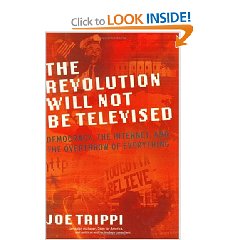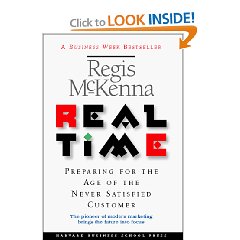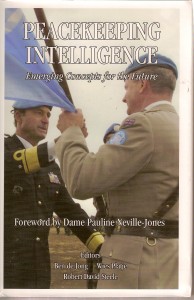I am sure this book will alter the perceptions of any management team in any domain. At a larger level of international information sharing, what the Swedes are calling M4 IS (multi-national, multi-agency, multi-disciplinary, multi-dimensional (or multi-domain) information sharing), this book is the single best and most practical book for turning Industrial era organizations into Information era organizations.
There have been other great books that captured some of these ideas early on, from the popular (Alvin and Heidi Toffler's POWERSHIFT, Paul Strassmann's Information PayOff) to the inspired (Thomas Stewart's Wealth of Knowledge, Barry Carter's Infinite Wealth : A New World of Collaboration and Abundance in the Knowledge Era), but this is the one that I think absolutely must be read by every flag officer and every colonel aspiring to be a flag officer, and their counterparts across all industries.
Heavily marked up, this book is already a classic. The author is brilliant in an elegant understandable manner in making several key points in an action-oriented implementation-facilitating fashion:
1) Technology is the easy part–changing the culture is the hard part (from information hoarding to information sharing)
2) Command and control stovepipes are a big part of the problem–we have to nurture trust and responsibility in all levels by giving all levels access to all information (within reason).
3) Communications, computers, and library services as well as external business intelligence services all have to be rolled together under one executive that has “direct report” relationship with the CEO–it is the networking of humans and their knowledge that has value, not the hardware and software and hard-wired comms lines
4) If you are not rolling over half your software and hardware each year, with nothing in your C4I system more than two years old at any one time, then you are losing capacity, productivity, and profit
5) 85% of what you know cannot be captured in structured knowledge archives–only a living network can allow employees to provide just enough, just in time articulation of answers that can be created in real time–this allows a *dramatic* shortening of the business information answer cycle, from months to hours.
6) If the CEO does not get it, live it, and enforce it, it will not happen.
The author shares with us practical real-world experience that makes this book a real-world manifestor rather than just a visionary proposal. His practical suggestions lead directly to the possibilities of global issue networks such as J.F. Rischard recommends in his HIGH NOON: Twenty Global Problems, Twenty Years to Solve Them, but this book by Robert Buckman is the real deal, a true “revolution in business affairs.”
We've reached a tipping point. The day this book reached airport bookstores, the world changed. From this point forward, we are either implementing this author's wisdom and gaining value, or not.












